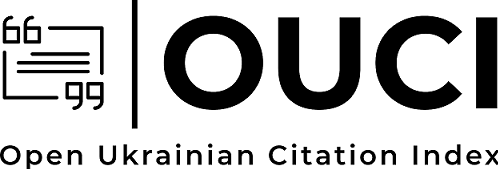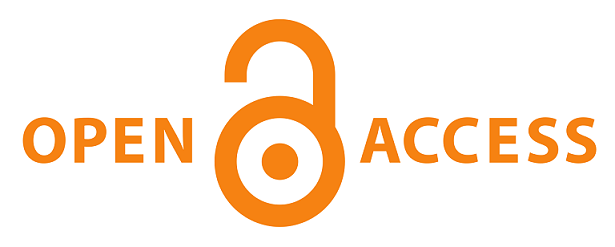COLLABORATION BETWEEN UKRAINIAN EDUCATORS AND THEIR YUGOSLAV COLLEAGUES IN THE 50-60S OF THE 20TH CENTURY
DOI:
https://doi.org/10.28925/2524-0757.2016.2.7Keywords:
USSR, SFRY, ties in education, educators, cultural cooperationAbstract
Cooperation between Ukrainian and Yugoslav educators become part of relations between peoples in the cultural sphere. For both sides it had been beneficial to implement joint programs in the educational work and several factors contributed to this. Education in both republics was on approximately the same level of development, had many similar features and system problems. The purpose of this research is to describe the social and political conditions, the content and the specific of contacts of Ukrainian educators with Yugoslav colleagues. Now when the relations of Ukraine with the new independent countries that emerged on the post-Yugoslav space are very scarce, compared with the second half of the 20th century, it is necessary to appeal to the past experience and take full advantage of it. Communication between Yugoslav and Ukrainian educators in the second half of the 20th century was not systematic. All meetings and visits that had taken place during these years were conducted by parties with interest and demonstrated a spirit of cooperation. Contacts developed in many areas of the educational process, from pre-school and ending with research institutions that were engaged in issues of education and upbringing. Educators of Yugoslav republics had tried to expand the subject ties, increase the number of experts, which were attached to the study of the experience, introduce a regular exchange of pupils and students groups etc. However, limited opportunities of the USSR in the sphere of international communication did not allow fully implement the proposals that came from Yugoslavia. Yugoslav officials and educators, which were working in the education system, were different from the Ukrainian colleagues in greater openness and criticality in the evaluation of educational institutions both in Ukraine and in Yugoslavia. They were not afraid to speak openly about their problems. Yugoslav colleagues were showing interest in everything that was not practicing in sphere of education and upbringing youth in their country. Yugoslav experts have observed most of these innovations in an extensive system of communist cultural and educational upbringing of the youth and labour groups that existed in the USSR. Members of the Yugoslav delegations, as a controversial phenomenon, have marked ideological orientation and propaganda of Soviet standards in such work Ukrainian colleagues. Yugoslav educators also stressed the need for greater involvement in the educational process the works of Ukrainian and world culture. Yugoslavs were mostly interested in those last working methods, Ukrainian movies, photos, books and others. They were trying to establish a regular exchange of similar materials. At present, collaboration between educators of the former Yugoslavia and Ukraine is virtually absent. Some projects are initiated only between universities of Ukraine and the newly independent republics of the post-Yugoslav space. Both parties are not using their potential to deploy fruitful contacts in education, which is going through difficult times of modernization, while these changes could be optimized and accelerated by the joint eff orts.
Downloads
References
Gembitskaia E. Muzykalnoie vospitaniie v Yugoslavii // Muzykalnaia zhizn. — M., 1968. — № 5. — S. 17–18.
Gosudarstvennyi arkhiv Rossiiskoi Federatsii g. Moskva. — F. 9576. — Op. 4. — Ed. xr. 425. — S. 198.
Maksfeld D.P. Razvitiie obrazovaniia v Yugoslavii // Sovetskaia pedagogika. Akademiia pedagogycheskikh nauk SSSR. — M. : Izdatelstvo «Pedagogika», 1970. — № 11. — S. 112.
Polgorodnyk S. Osvita v Yugoslavii // Radianska osvita. — 25 kvitnia 1973.
Rozvy`tok kul`tury` yugoslov`yans`ky`x narodiv [Elektronnyi resurs]. — Rezhym dostupu : http://www.djerelo.com/index.php?option=com_content &task=view&id=4458&Itemid=272
Rossiiskiy gosudarstvennyi arkhiv literatury i iskusstva g. Moskva (RGALI` g. Moskva). — F. 2329. — Op. 9. — Ed. khr. 243. — L. 18.
RGALI. — F. 2329. — Op. 9. — Ed. xr. 732. — L. 8.
Systema narodnogo obrazovaniia v evropeiskikh sotsialisticheskykh stranakh // Narodnoie obrazovanie. Ezhemesiachnyi zhurnal Ministerstva prosveshcheniya RFSR. — M., 1967. — № 6. — S. 97.
SFRYu. Fakty o Yugoslavii. Kultura [Elektronnyi resurs]. — Rezhym dostupu: http://www.sovetika.ru/sfrj/fakty9.htm.
Khudozhestvennoie vospitaniie v shkolakh Yugoslavii // Narodnoie obrazovaniie. — M., 1968. — № 2. — S. 104–105.
Tsentralnyi derzhavnyi arkhiv vyshchykh organiv vlady ta upravlinnia Ukrainy (dali — TsDAVO Ukrainy). — F. 2. — Op. 9. — Spr. 2519. — Ark. 110.
TsDAVO Ukrayiny. — F. 5110. — Op. 1. — Spr. 1571. — Ark. 4.
TsDAVO Ukrayiny. — F. 5110. — Op. 1. — Spr. 1964. — Ark. 1–10.
TsDAVO Ukrayiny. — F. 5110. — Op. 1. — Spr. 3379. — Ark . 19.
TsDAVO Ukrayiny. — F. 5110. — Op. 1. — Spr. 872. — Ark. 1–2.
TsDAVO Ukrayiny. — F. 5110. — Op. 1. — Spr. 938. — Ark. 174–181.
Centralnyi derzhavnyi arkhiv hromadskykh obiednan Ukrainy (dali — TsDAHO Ukrainy). — F. 1. — Op. 24. — Spr. 4130. — Ark. 107.
TsDAHO Ukrayiny. — F. 1. — Op. 24. — Spr. 4578. — Ark. 124–231.
TsDAHO Ukrayiny. — F. 1. — Op. 24. — Spr. 4580. — Ark. 250–252.
Published
How to Cite
Issue
Section
License
Copyright (c) 2016 Kyiv Historical Studies

This work is licensed under a Creative Commons Attribution-NonCommercial-ShareAlike 4.0 International License.
Authors who publish in this journal retain the right of authorship of the work and give to the journal right of first publication of this work under the conditions of Creative Commons: Attribution-NonCommercial-ShareAlike 4.0 International (CC BY-NC-SA 4.0), which allows others freely distribute the work published with reference to the authors of the original work and the first publication of this magazine.














